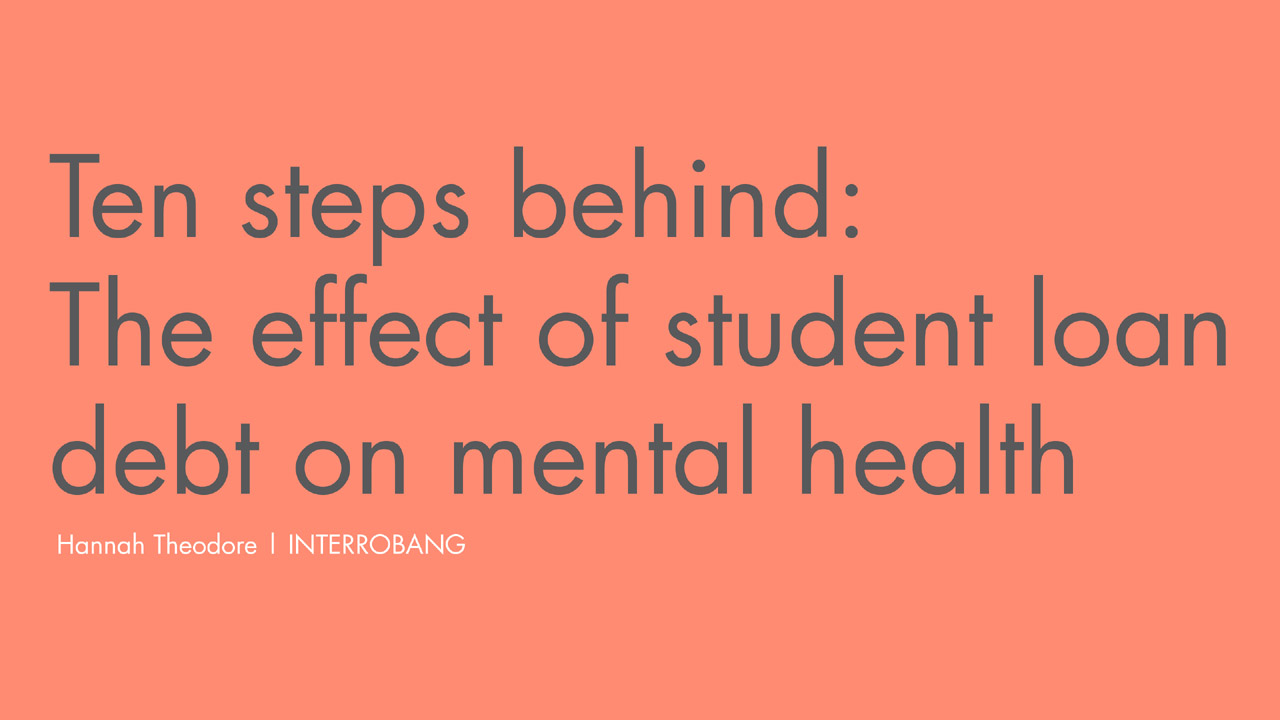Ten Steps Behind: The effect of student loan debt on mental health

Many young people know the pain of student loan debt all too well. Students finish their post-secondary studies, ready to begin the next chapter in their lives, but thousands of dollars’ worth of debt is holding them back.
While there have been great strides in recent years towards government grants over loans, many graduates are still faced with the same reality. How do you get ahead in life financially when you’re starting 10 steps behind everyone else?
According to Credit Karma, the average student loan is roughly $17,000 after graduation. It’s not uncommon for loans to reach far more than that for young Canadians pursuing postgraduate studies. This kind of debt so early in life can lead to serious mental health issues, brought on by the anxiety of paying your loans on time, and feeling like your loans may never go away.
According to StatsCanada, 48 per cent of Canadians say they’ve lost sleep over financial stress (2019). Meanwhile, an Ipsos survey found that 40 per cent of Canadians agreed that their debt was negatively affecting their mental health (2018).
Student loan debt is unique because for most Canadians, there is a belief that attending college or university is a necessity. Unlike credit card debt or car loans, taking out student loans doesn’t feel like a choice, but rather something that must be done. The pressure to attend university at all, especially for those who come from lower-income families, makes it almost impossible to not take out student loans. In this way, student loans could be considered “good debt,” because they led to a positive education. However, that doesn’t make the repayment period any less difficult.
Loan repayment adds an extra layer of financial stress to the lives of young people right at the start of their careers. Monthly payments can reach over $300 a month depending on the plan. For graduates beginning their careers in entry-level jobs or internship positions, an added monthly expense is just another point of anxiety. More expenses mean less money for saving, or buying the things we need and want. Money may not buy happiness, but the feeling of restriction caused by a lack of money can wreak emotional havoc over time.
The sense of dread that comes with orchestrating repayment plans can also lead to hopelessness and depression. Knowing you might be paying off your loan into your forties or fifties can be downright panic-inducing.
There are ways to combat this mental distress, however. The best first step is to see a credit counselor or visit your bank. While you may not have much wiggle room when it comes to repayment options, there are ways to manage your spending in other ways that make loan repayments less painful. Remember that there is a light at the end of the tunnel, even if it may be years down the line. Treating anxiety and depression with regular therapy and medication may also help mitigate the fear tied to paying back your student loans. Some Canadian politicians are even looking at retroactively cancelling student debt and making post-secondary education free in the future.
Debt can be crippling and student loans hurt young Canadians more than anyone. But there is help and there is hope that one day, they can be conquered.

















